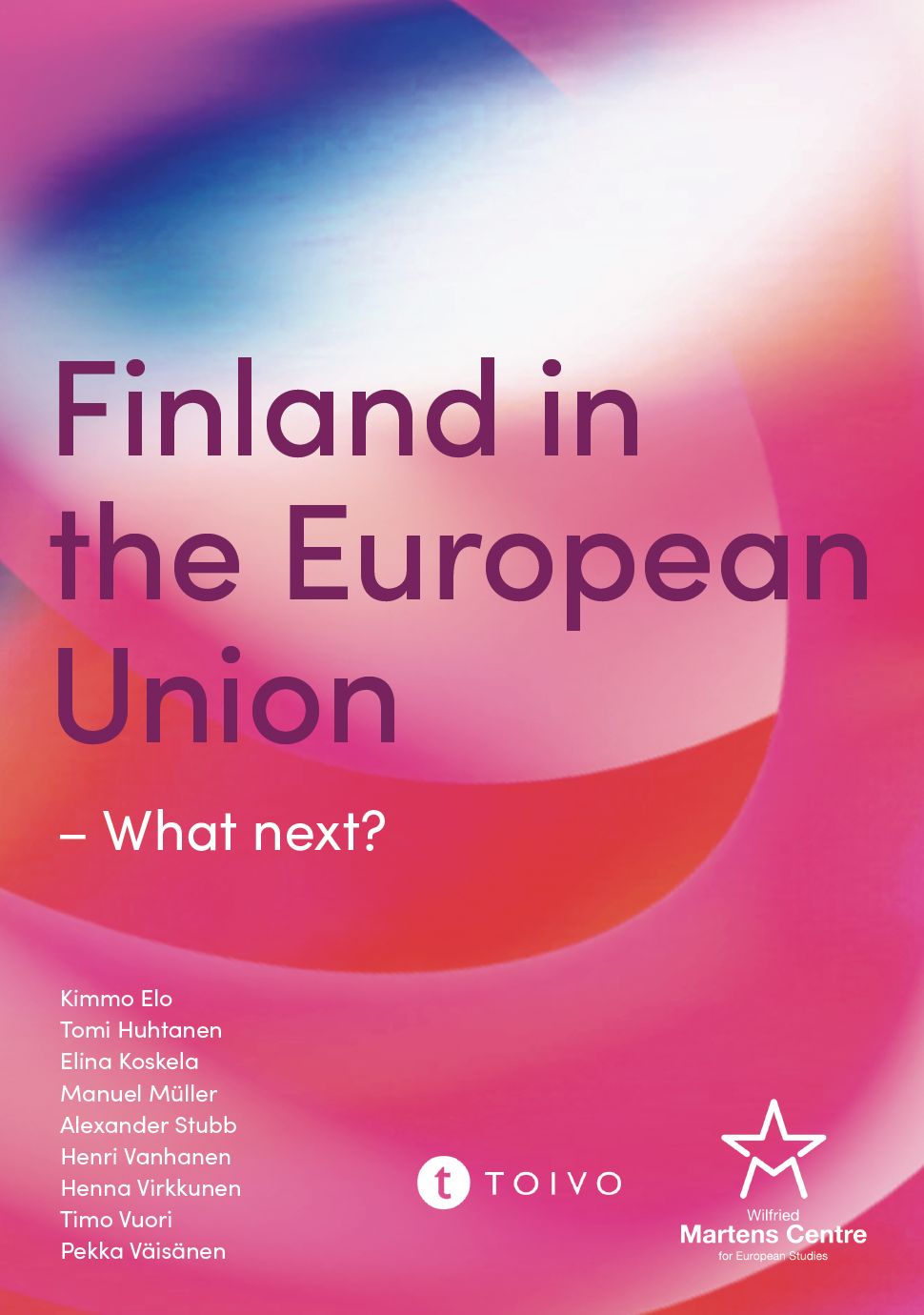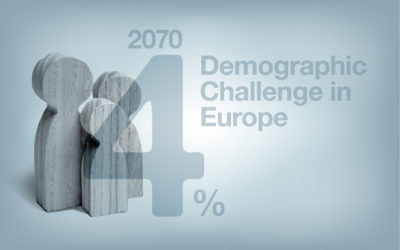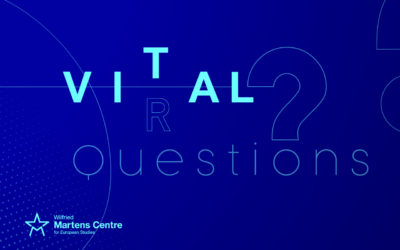Related publications
-
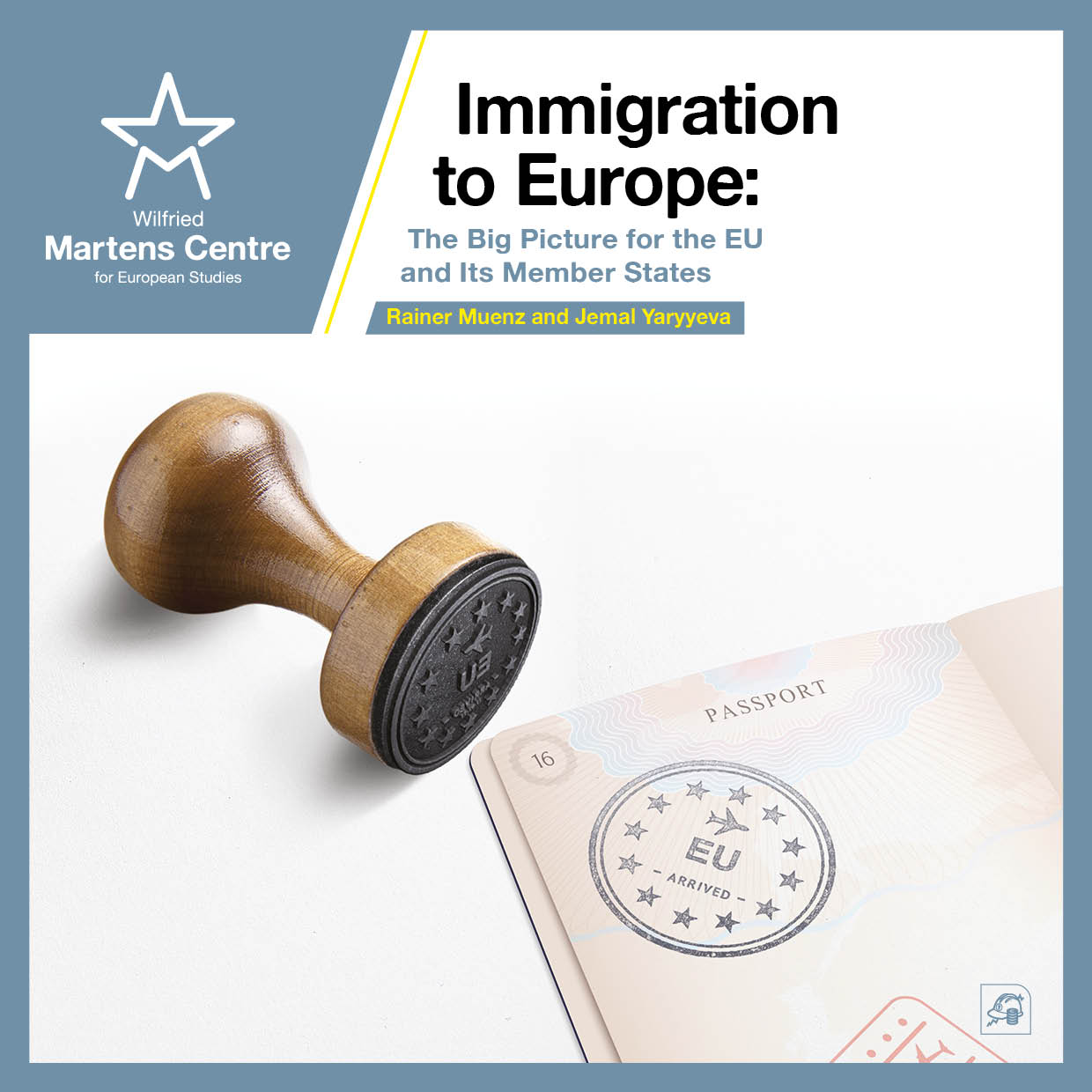
Research Papers
Immigration to Europe: The Big Picture for the EU and Its Member States
-

The 7Ds
The 7Ds – Defence Extended
-
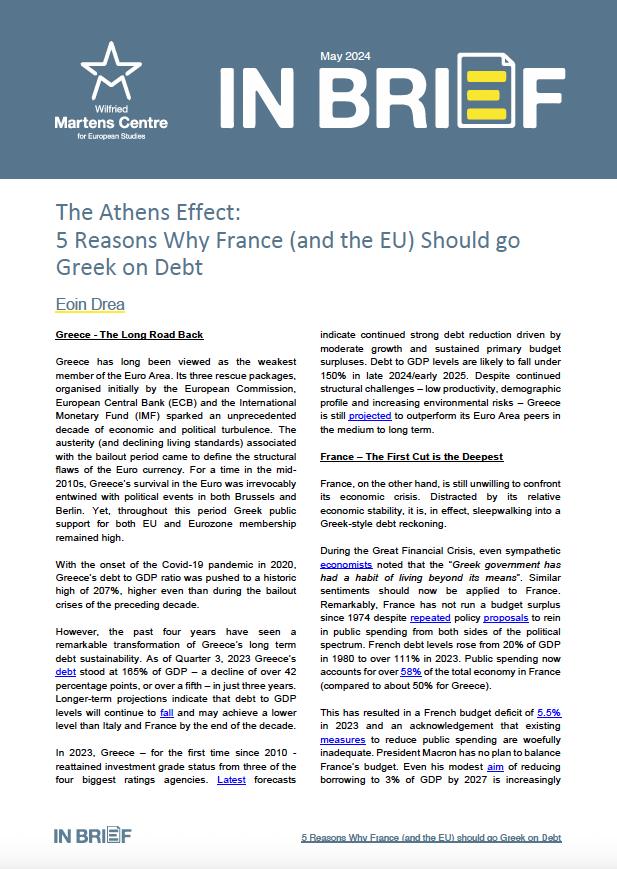
IN BRIEF
The Athens Effect: 5 Reasons Why France (and the EU) Should go Greek on Debt
-

The 7Ds
The 7Ds – Demography in Depth
-

The 7Ds
The 7Ds – Democracy in Depth
-
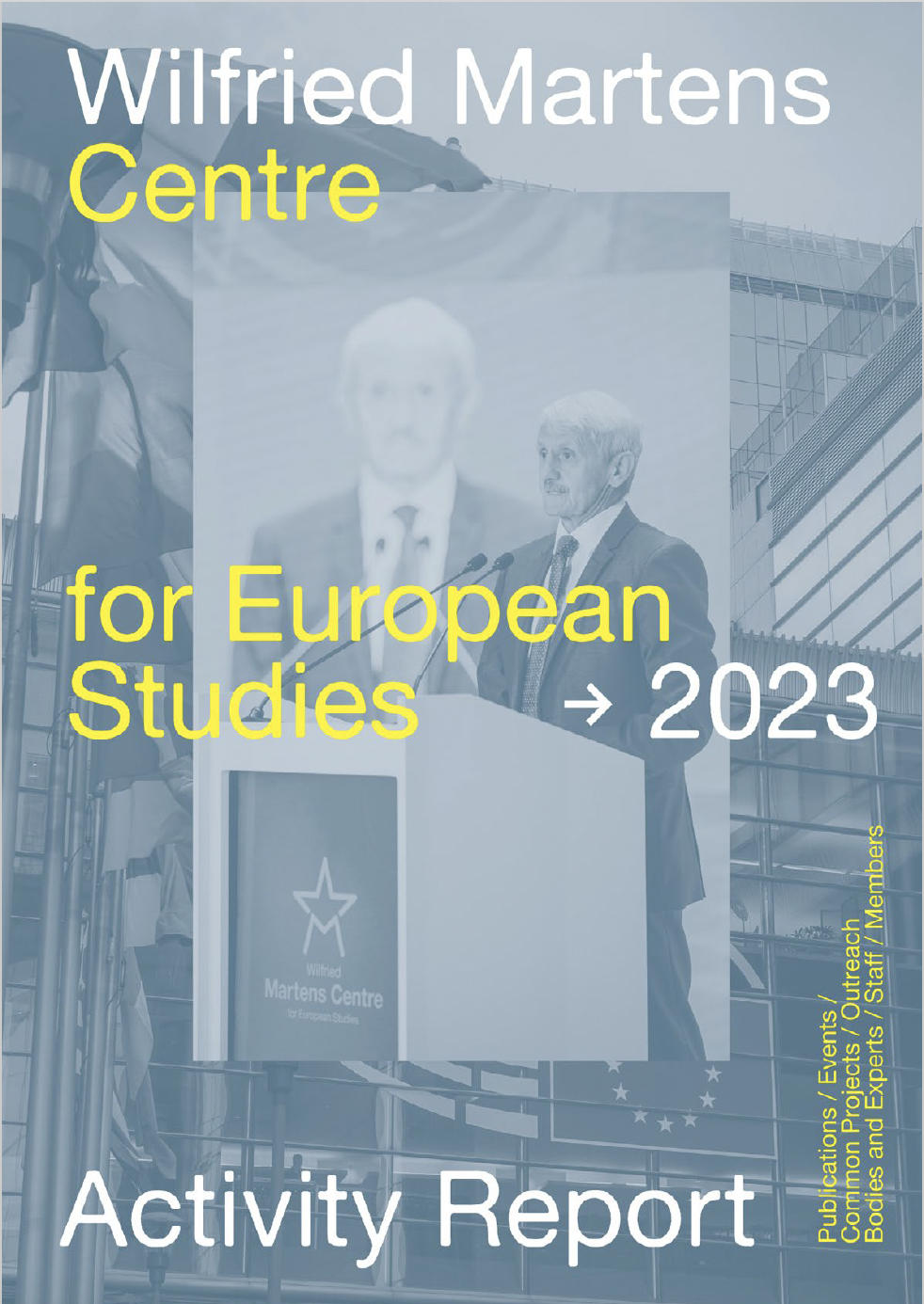
Activity Report
Activity Report 2023
-
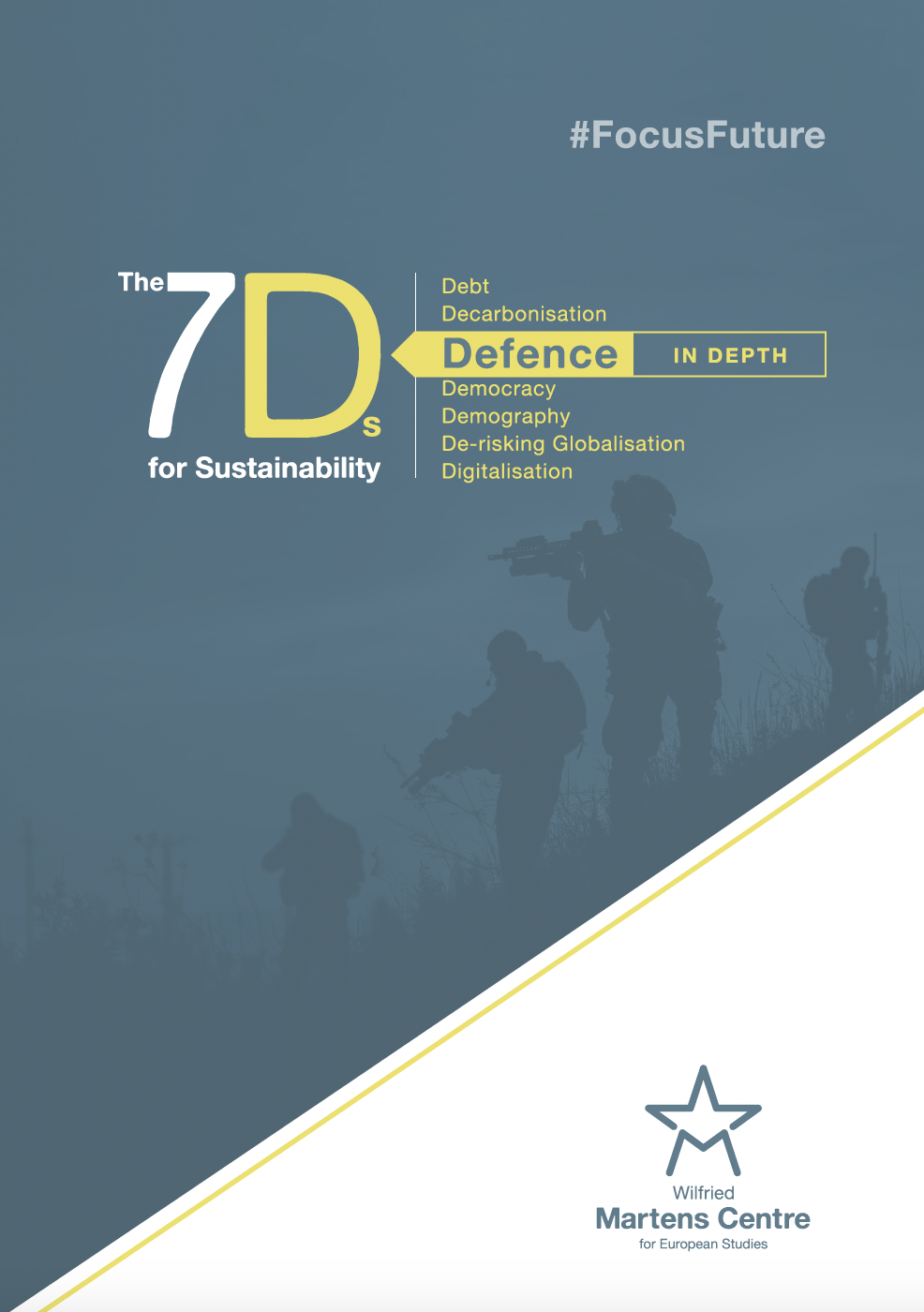
The 7Ds
The 7Ds – Defence in Depth
-
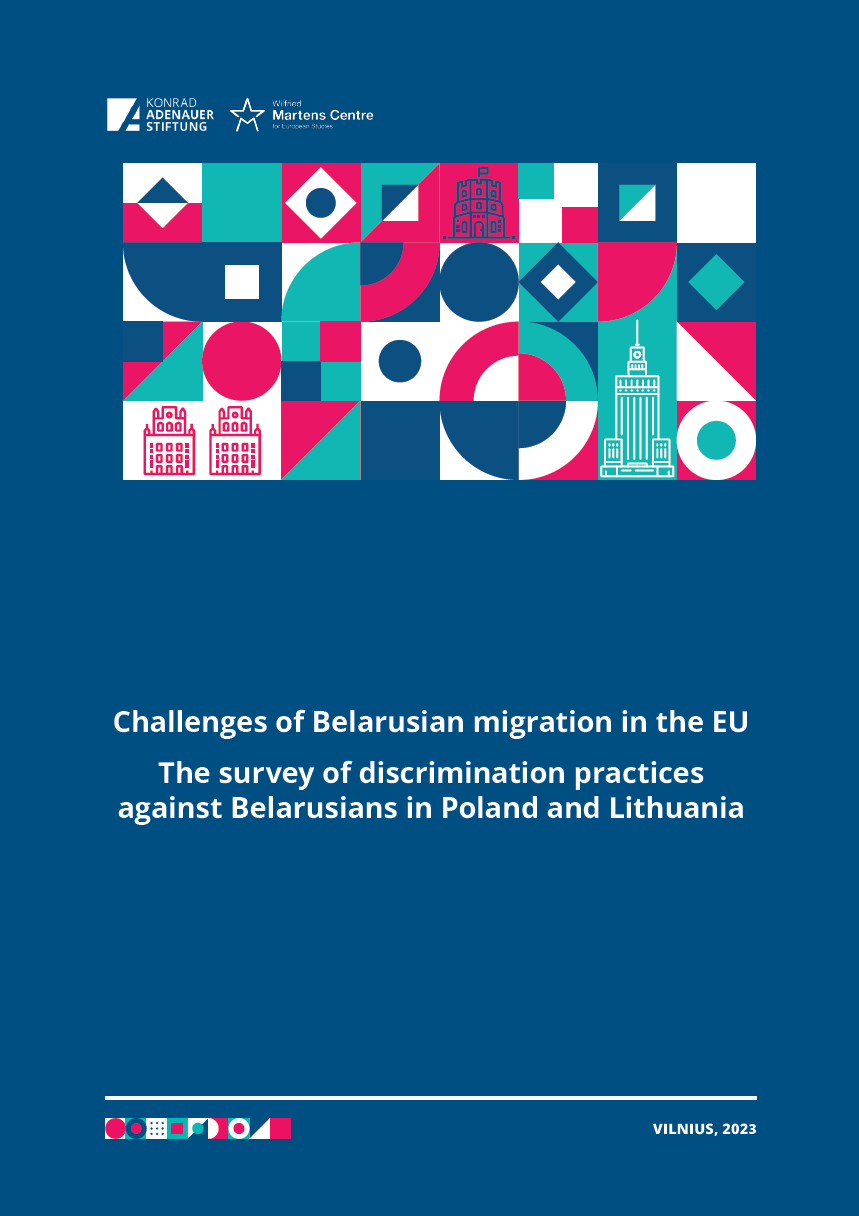
Collaborative
Challenges of Belarusian Migration in the EU


